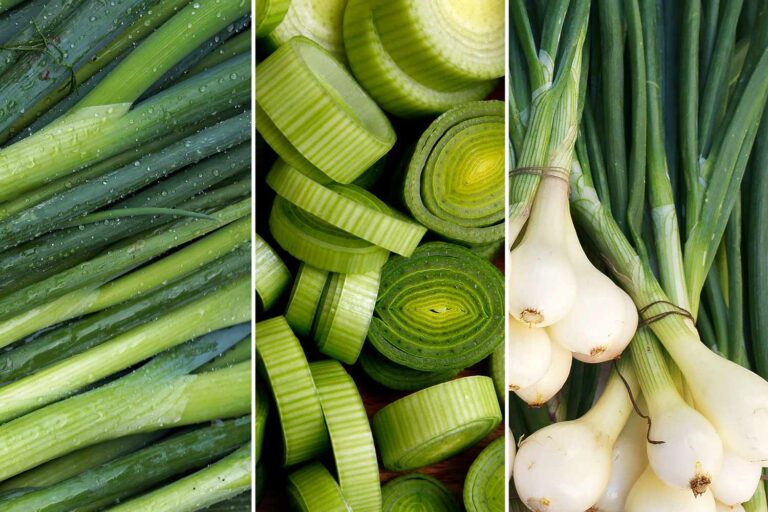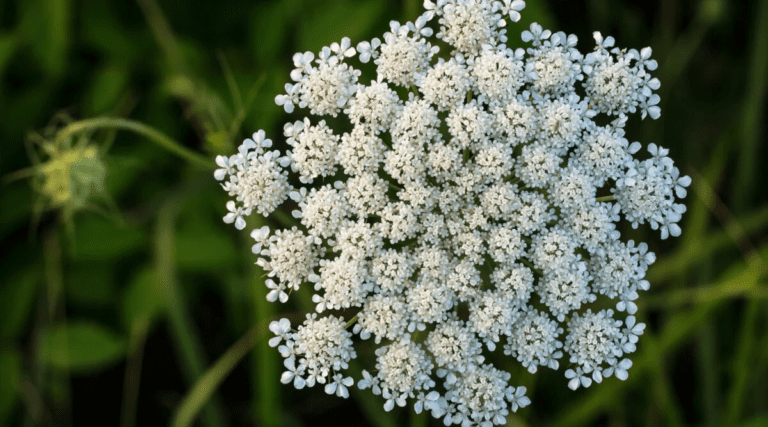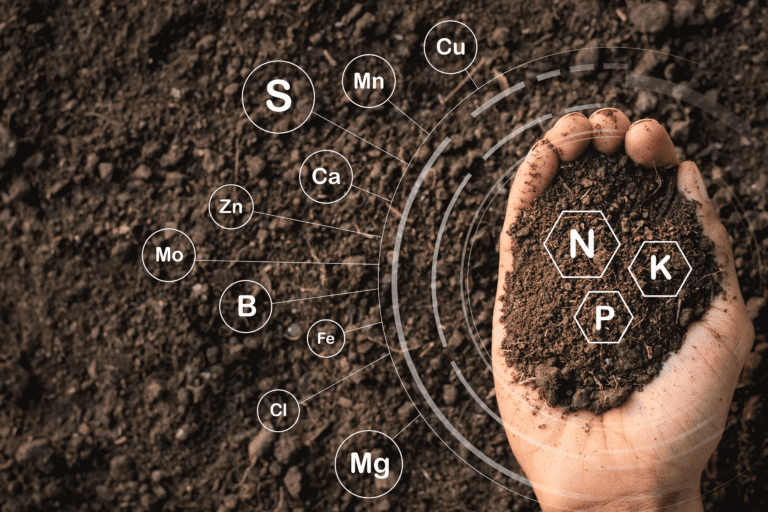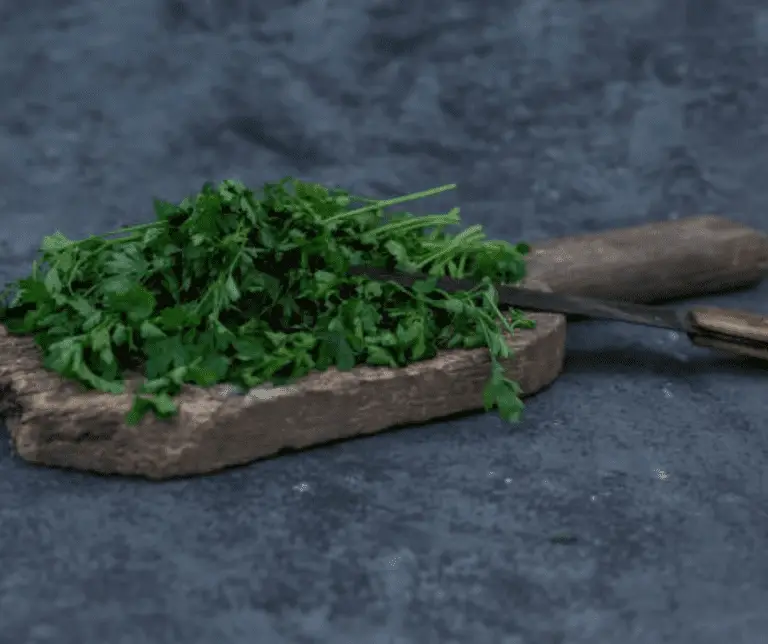Horse Manure: the ultimate guide From Road Apples To Fertilizer
Table of Contents
The Role of Horse Manure in Agriculture
Horse manure has long been recognized as a valuable resource in agriculture due to its numerous benefits for soil health and fertility. As a natural fertilizer, horse manure provides essential nutrients that plants need to thrive, including nitrogen, phosphorus, and potassium. These nutrients are crucial for plant growth and development, helping to increase crop yields and improve overall agricultural productivity.
In addition to its nutrient content, horse manure also enhances soil structure and moisture retention. When applied to the soil, it helps to improve its texture, making it more crumbly and well-draining. This allows plant roots to penetrate the soil more easily, promoting better nutrient uptake and reducing the risk of waterlogging. Furthermore, horse manure acts as an organic matter source, adding beneficial microorganisms to the soil that contribute to its overall health and fertility.
The role of horse manure in agriculture goes beyond its direct benefits to soil and plants. By using horse manure as a fertilizer, farmers can also contribute to sustainable agricultural practices. Horse manure is a renewable resource that can be obtained from horse stables, riding schools, and equestrian centers. By diverting this waste product from landfills and harnessing its potential as a valuable fertilizer, farmers can reduce environmental pollution and promote a circular economy approach in agriculture.
Overall, the role of horse manure in agriculture cannot be underestimated. Its nutrient content, soil-enhancing properties, and environmental benefits make it an indispensable tool for farmers and gardeners alike. By properly collecting, storing, and composting horse manure, it can be effectively utilized as a natural and sustainable fertilizer, leading to healthier crops, improved soil health, and a more environmentally friendly approach to agriculture.
Understanding the Composition of Horse Manure
Horse manure is a valuable resource that contains a complex combination of organic materials, making it an excellent fertilizer for plants. The composition of horse manure can vary depending on factors such as the horse’s diet, age, and health. On average, horse manure is composed of approximately 60% organic matter, 20% moisture, and 20% minerals.
The organic matter in horse manure consists of undigested plant material, such as hay and grass, as well as microorganisms, bacteria, and fungi. These microorganisms play a crucial role in breaking down the organic matter and releasing nutrients that are essential for plant growth. The minerals found in horse manure include nitrogen, phosphorus, potassium, calcium, and magnesium, which are all vital nutrients for plants.
When properly composted, horse manure can provide a balanced combination of nutrients that can enhance soil fertility and promote healthy plant growth. However, it’s important to note that fresh horse manure may contain high levels of ammonia and pathogens, which can be harmful to plants and humans alike. Therefore, it is crucial to follow proper collection and composting procedures to ensure the safety and effectiveness of using horse manure as fertilizer.

The Nutritional Value of Horse Manure as Fertilizer
Horse manure is a nutrient-rich fertilizer that can provide numerous benefits to plants and soil. It contains a wide range of essential nutrients, including nitrogen, phosphorus, and potassium, which are vital for plant growth and development. These nutrients are released slowly over time, providing a steady supply to plants and helping to promote healthy growth.
In addition to the major nutrients, horse manure also contains trace elements such as calcium, magnesium, and sulfur, which are important for various physiological processes in plants. These trace elements, although required in smaller quantities, play a critical role in plant metabolism and overall health.
Furthermore, horse manure acts as an organic amendment that improves soil structure and fertility. Its high organic matter content helps to increase soil moisture retention and promotes better drainage, leading to an optimal environment for plant growth. The addition of horse manure to soil also enhances its ability to hold onto nutrients, preventing their loss through leaching and increasing their availability to plants.
The Environmental Benefits of Using Horse Manure as Fertilizer
Horse manure can be a valuable resource in agriculture due to its numerous environmental benefits. One of the major advantages of using horse manure as fertilizer is its ability to improve soil structure and water retention. The organic matter in horse manure enhances soil aggregation, creating pore spaces that allow water to infiltrate and be stored in the soil, reducing the risk of runoff and soil erosion. This can be especially beneficial in areas prone to drought or with sandy soils that have low water-holding capacity.
Furthermore, horse manure contains essential nutrients that are crucial for plant growth and development. Nitrogen, phosphorus, and potassium, commonly referred to as NPK, are present in varying amounts within horse manure. These nutrients are vital for plant health, as they play a key role in processes such as photosynthesis, root development, and fruit production. By incorporating horse manure into the soil, gardeners and farmers can provide their plants with a slow-release, nutrient-rich fertilizer that promotes vigorous growth and helps prevent nutrient deficiencies.
In addition to its positive impact on soil and plant health, using horse manure as fertilizer can also contribute to reducing greenhouse gas emissions and mitigating climate change. When organic waste, like horse manure, is composted and used as fertilizer, it helps divert waste from landfills, where it would otherwise release methane, a potent greenhouse gas. By recycling and utilizing horse manure, we can reduce the environmental impact of waste disposal while simultaneously improving soil fertility and plant productivity.
Overall, horse manure offers a range of environmental benefits, from enhancing soil structure and nutrient content to reducing greenhouse gas emissions. Its use as a fertilizer can contribute to sustainable and environmentally-friendly agricultural practices, providing an effective and eco-conscious solution for gardeners, farmers, and land managers alike.

How to Properly Collect and Store Horse Manure
Properly collecting and storing horse manure is crucial to ensure its effectiveness as a fertilizer and to avoid any potential issues that may arise. When it comes to gathering horse manure, it is important to maintain cleanliness and hygiene. Start by preparing a designated area or container to collect the manure. Regularly removing manure from the stable and paddock areas will help keep the environment clean and prevent the accumulation of waste.
While collecting horse manure, it is essential to use proper protective gear such as gloves and a mask to safeguard against any potential infections. Additionally, always remember to clean and sanitize the collection tools after each use. This simple step will prevent the spread of any potential diseases or parasites that may be present in the manure. By taking these precautions, you can ensure a safe and hygienic collection process.
When it comes to storing horse manure, proper storage techniques are vital to maintain its nutrient content and prevent any unpleasant odors. It is important to create a well-ventilated storage area, preferably away from living spaces or areas prone to water runoff. This helps mitigate any potential odor issues and prevents contamination of water sources. Consider using a compost bin or a covered container to store the manure, ensuring that it is protected from rain and excessive moisture.
Regularly turning the manure pile with a pitchfork or shovel will promote aerobic decomposition, preventing the formation of anaerobic conditions that can produce unpleasant odors. It is also helpful to maintain a proper carbon-to-nitrogen ratio by adding other organic materials, such as straw or leaves, to the pile. This balance promotes efficient decomposition and ensures that the resulting compost will have optimal nutrient levels for your plants.
By following these guidelines, you can collect and store horse manure correctly, maximizing its potential as a fertilizer for your gardening endeavors. Remember, proper collection and storage practices not only contribute to the health and vitality of your plants but also promote a cleaner and more sustainable agricultural system.

The Process of Composting Horse Manure
Composting horse manure is an effective way to transform this organic waste into a valuable resource for your garden or farm. The process of composting horse manure involves several key steps to ensure that it breaks down properly and creates nutrient-rich compost.
First, it is important to gather a sufficient quantity of horse manure. Depending on the size of your garden or farm, you may need to collect manure over a period of time to have enough for a proper compost pile. It is also essential to collect manure that is relatively free from bedding material, such as straw or wood shavings, as these can slow down the composting process. Mixing the manure with other organic materials, such as leaves, grass clippings, or kitchen scraps, can help create a well-balanced compost pile.
Once you have collected the horse manure and other organic materials, you can start building your compost pile. A well-built compost pile should be a minimum of three feet high and three feet wide to ensure proper heat and moisture retention. It is important to layer the materials, alternating between horse manure and other organic materials. This layering helps create the ideal mix of carbon and nitrogen, which are essential for the composting process.
After building the compost pile, the next step is to monitor and maintain the right conditions for decomposition. Turning or aerating the compost pile every few weeks helps maintain proper oxygen levels and speeds up the breakdown of materials. It is also important to keep the compost pile moist, but not overly wet, to allow for the activity of beneficial microorganisms that break down organic matter.
The composting process can take several months to complete, depending on factors such as temperature, moisture levels, and the types of materials used. Regular monitoring of the compost pile’s temperature and moisture content can help ensure that the process is progressing as desired. When the compost is ready, it will have a dark, crumbly texture and a earthy smell, indicating that it is fully decomposed and ready to be used as a nutrient-rich fertilizer for your plants.
| Step | Description |
|---|---|
| Gather Horse Manure | Collect a sufficient quantity of horse manure, ensuring it is free from bedding materials such as straw or wood shavings. |
| Mix with Other Organic Materials | Combine the horse manure with other organic materials such as kitchen scraps, grass clippings, leaves, and plant trimmings to create a well-balanced compost pile. |
| Build a Large Compost Pile | Construct a compost pile that is at least three feet high and wide to facilitate proper heat and moisture retention, essential for efficient decomposition. |
| Layer Materials | Alternate layers of horse manure with other organic materials, such as straw or leaves, to achieve an optimal mix of carbon and nitrogen, promoting microbial activity and decomposition. |
| Monitor and Maintain Oxygen Levels | Regularly turn or aerate the compost pile every few weeks to ensure adequate oxygen levels for aerobic decomposition. This helps prevent anaerobic conditions and foul odors. |
| Maintain Moisture Levels | Keep the compost pile moist, but not overly wet, by watering as needed. Adequate moisture is essential for the activity of beneficial microorganisms responsible for breaking down organic matter. |
| Monitor Temperature and Moisture | Regularly check the temperature and moisture content of the compost pile using a compost thermometer and by visually assessing moisture levels. Adjust as needed to optimize the composting process. |
| Allow Sufficient Time for Composting | Composting can take several months, depending on factors such as temperature, moisture levels, and the types of materials used. Be patient and monitor progress regularly. |
| Assess Readiness of Compost | When the compost is ready, it will have a dark, crumbly texture and an earthy smell, indicating that it is fully decomposed and ready for use as a nutrient-rich fertilizer. |
| Use Compost in Garden or Farm | Apply the finished compost to your garden or farm soil to promote healthy plant growth. Incorporate it into the soil or use it as a top dressing or mulch around plants. |
Following these steps will help you effectively compost horse manure and other organic materials, resulting in nutrient-rich fertilizer for your garden or farm.
Best Practices for Using Horse Manure as Fertilizer
Properly utilizing horse manure as fertilizer is crucial for achieving optimal results in your gardening or farming endeavors. By following best practices, you can maximize the nutrient content of the manure and minimize any potential risks or drawbacks. Here are some key guidelines to keep in mind:
1. Age and compost the manure: Fresh horse manure is rich in nutrients but can be too potent and may burn plants if directly applied. To avoid this, allow the manure to age for at least six months. Composting the manure further breaks down organic matter, improves its structure, and reduces the risk of weed seeds and pathogens.
2. Test the soil: Before applying horse manure, it’s essential to assess the nutrient levels and pH of your soil. Conducting a soil test will provide valuable information about its current composition and help you determine how much manure to apply. This will prevent over-fertilization, which can lead to nutrient runoff and environmental issues.
Remember, proper handling, storage, and application techniques are necessary to optimize the use of horse manure as fertilizer. Stay tuned for more tips on incorporating this valuable resource into your gardening practices.

Common Mistakes to Avoid When Using Horse Manure as Fertilizer
When using horse manure as fertilizer, it is important to be aware of common mistakes that can hinder its effectiveness. One common mistake is not properly composting the manure before applying it to the soil. Fresh horse manure is high in nitrogen, but it also contains high levels of ammonia, which can burn plant roots and damage the soil structure. Composting the manure allows for the breakdown of organic matter, which reduces the risk of ammonia damage and helps release nutrients slowly over time. This can be achieved by creating a compost pile with a mix of carbon-rich materials, such as straw or leaves, and horse manure, and regularly turning and watering the pile to promote decomposition.
Another common mistake is over-application of horse manure. While horse manure can be a valuable source of nutrients, applying too much can result in an imbalance of nutrients and harm plants. It is recommended to conduct a soil test to determine the nutrient needs of your plants and adjust the amount of manure accordingly. Additionally, it is important to consider the nutrient content of the manure, as different horses may have varying diets that affect the nutrient composition of their manure. Properly understanding the nutritional content of the manure can help ensure that you apply the correct amount to meet your plants’ needs.
The Impact of Horse Manure on Soil Health
Horse manure has a significant impact on soil health, making it an invaluable resource for farmers and gardeners alike. When properly incorporated into the soil, horse manure can enhance its fertility by improving its physical, chemical, and biological properties.
One of the key benefits of horse manure is its ability to increase soil organic matter content. This organic matter serves as a source of nutrients, energy, and food for soil microorganisms, earthworms, and other beneficial organisms. As these organisms break down the manure, they release essential nutrients such as nitrogen, phosphorus, and potassium, making them readily available for plant uptake. Moreover, the organic matter in horse manure helps improve soil structure, promoting better water and nutrient retention, as well as enhancing soil aeration.
In addition to its nutrient content and soil conditioning properties, horse manure also contributes to overall soil health by supporting biodiversity. The presence of organic matter and beneficial microorganisms in the manure encourages the growth of diverse soil organisms, including bacteria, fungi, earthworms, and arthropods. This biodiversity plays a crucial role in nutrient cycling, disease suppression, and maintaining soil structure. By incorporating horse manure in their agricultural practices, farmers can foster a healthy and thriving soil ecosystem, which, in turn, supports the growth and productivity of their crops.

Horse Manure vs. Other Types of Organic Fertilizers
When it comes to choosing the right organic fertilizers for your garden, horse manure stands out as a valuable option. Compared to other types of organic fertilizers, horse manure offers unique benefits that can significantly enhance soil fertility and boost plant growth.
One key advantage of horse manure is its nutrient content. It is rich in essential elements like nitrogen, phosphorus, and potassium, which are vital for healthy plant development. In fact, horse manure often contains higher levels of these nutrients compared to other organic fertilizers such as cow manure or compost. Additionally, horse manure contains valuable micronutrients like calcium, magnesium, and zinc, which play crucial roles in supporting plant growth and overall soil health.
Furthermore, horse manure has a balanced carbon-to-nitrogen ratio, making it an excellent source of organic matter for improving soil structure and moisture retention. Unlike some organic fertilizers that can have high carbon content and lead to nitrogen depletion in the soil, horse manure provides a steady release of nitrogen over time, ensuring plants have access to this essential nutrient throughout their growth cycle.
In addition to its nutrient profile, horse manure offers additional benefits, such as weed suppression and disease suppression. The high temperatures reached during the composting process of horse manure can effectively kill weed seeds and pathogens, reducing the competition and risk of plant diseases in your garden.
While horse manure offers many advantages, it is important to note that proper composting and aging are crucial to eliminate any potential weed seeds or parasites that may be present. This ensures that the manure is safe to use and minimizes the risk of spreading weed populations or introducing harmful organisms into your garden. Additionally, before applying horse manure to your garden, it is advisable to have a soil test conducted to determine the specific nutrient requirements of your plants and make any necessary adjustments.
Overall, when comparing horse manure to other types of organic fertilizers, it is evident that horse manure offers a wealth of beneficial nutrients, organic matter, and disease suppression properties. By properly collecting, composting, and using horse manure, gardeners can harness its potential to improve soil health and promote vigorous plant growth. So, consider incorporating horse manure into your gardening practices and witness the remarkable benefits it can bring to your plants.

Regulations and Guidelines for Using Horse Manure as Fertilizer
Regulations and guidelines play a crucial role in ensuring the safe and effective use of horse manure as fertilizer. When it comes to utilizing horse manure in agriculture, various institutions and regulatory bodies have established standards to ensure the proper handling and application of this valuable resource.
One of the primary regulations focuses on the quality of horse manure. It is important to source manure from healthy horses that have been fed a balanced diet free from contaminants. Additionally, manure should be free from any medications or chemicals that could harm plants or the environment. Regular testing for pathogens and heavy metals is also advised to maintain the quality of the manure.
Another aspect of the regulations involves the proper application of horse manure. It is recommended to apply manure at the appropriate time and in the correct quantities to avoid nutrient imbalances, runoff, and leaching. Following recommended application rates based on soil testing and considering the nutrient needs of the specific crops being cultivated is crucial. Proper storage and handling of horse manure are also essential to prevent environmental contamination and minimize odour issues.
By adhering to these regulations and guidelines, farmers and gardeners can ensure the safe and sustainable use of horse manure as fertilizer. Following these best practices not only preserves the nutritional value of the manure but also contributes to environmental conservation and promotes the overall health of the ecosystem. With proper understanding and implementation of the regulations, horse manure can continue to be a valuable resource in sustainable agriculture.
The Role of Horse Manure in Sustainable Agriculture
Horse manure has long been recognized as a valuable resource for sustainable agriculture. Its rich nutrient composition makes it an excellent organic fertilizer that can improve soil quality and promote plant growth. Horse manure contains essential elements like nitrogen, phosphorus, and potassium, which are crucial for healthy plant development. These nutrients are released slowly over time, providing a steady supply of nourishment for crops.
In addition to its nutritional benefits, the use of horse manure in sustainable agriculture also contributes to soil health and biodiversity. When incorporated into the soil, horse manure helps to improve its structure, aeration, and water-holding capacity. It enhances microbial activity and promotes the growth of beneficial soil organisms, such as earthworms, which play a vital role in nutrient cycling and soil fertility.
Moreover, horse manure is an eco-friendly option for farmers and gardeners. By recycling this organic waste, they reduce the need for synthetic fertilizers, which can have negative environmental impacts. Horse manure is readily available and can be obtained from local farms or stable yards, making it a cost-effective and sustainable alternative.

Case Studies: Successful Use of Horse Manure as Fertilizer
Case Study 1: Successful Use of Horse Manure in Organic Farming
In a small-scale organic farm in the heart of California, the use of horse manure as fertilizer has yielded remarkable results. The farm, owned by John Harrison, prides itself on sustainable practices and is committed to maintaining soil health. By incorporating horse manure into their farming techniques, they have witnessed increased crop yields and improved soil fertility.
Harrison, in collaboration with local horse farms, collects the waste material and carefully composts it to ensure the elimination of any potential contaminants and pathogens. The composted horse manure undergoes rigorous testing to determine its nutrient content. These tests consistently reveal high levels of nitrogen, phosphorus, and potassium, essential macronutrients for plant growth.
The farm has effectively utilized the composted horse manure as a top dressing for their crops, such as tomatoes, peppers, and lettuce. The results have been impressive, with plants exhibiting healthier growth, increased fruit production, and improved disease resistance. The farm’s success is a testament to the valuable role horse manure can play in sustainable agriculture, providing both nutritional benefits and environmental advantages.
Tips for Incorporating Horse Manure into Organic Gardening
When incorporating horse manure into organic gardening practices, there are a few key tips to keep in mind. Firstly, it is important to properly compost the manure to ensure that any potential pathogens or weed seeds are killed off. This can be done by creating a compost pile that reaches temperatures of at least 130 degrees Fahrenheit for several weeks.
Additionally, it is recommended to mix the composted horse manure with other organic materials, such as leaves or grass clippings, to create a well-balanced and nutrient-rich soil amendment. This will help provide a diverse array of nutrients and promote healthy plant growth.
Furthermore, it is crucial to consider the timing of applying horse manure to the garden. It is generally advised to apply the composted manure in the fall, allowing it to break down over the winter months and provide a fertile soil for the upcoming growing season. Applying it too late in the season may result in nutrient runoff and potential environmental issues.
By following these tips for incorporating horse manure into organic gardening, gardeners can optimize their use of this valuable resource and enjoy the benefits of healthier plants and increased yields. Remember, proper composting, ingredient ratios, and timing are key factors in achieving successful results.

Horse Manure: A Valuable Resource for Small-Scale Farmers
Small-scale farmers face unique challenges when it comes to optimizing their crop yield and maintaining soil fertility. One valuable resource that can significantly benefit these farmers is horse manure. Horse manure is rich in essential nutrients, organic matter, and beneficial microorganisms that can enhance soil health and promote plant growth.
One of the key advantages of horse manure is its high nutrient content. As horses consume a diverse diet, their manure contains a wide range of nutrients, including nitrogen, phosphorus, and potassium. These macronutrients are essential for plant growth and development. Moreover, horse manure also contains trace elements such as calcium, magnesium, and iron, which are vital for healthy plant nutrition. By utilizing horse manure as a fertilizer, small-scale farmers can ensure that their crops have access to a balanced and comprehensive nutrient source, leading to improved yields and healthier plants.
Another benefit of horse manure for small-scale farmers is its ability to enrich the soil with organic matter. Organic matter plays a crucial role in soil structure, water retention, and nutrient availability. By incorporating horse manure into their soil, farmers can increase its organic matter content, which results in improved soil fertility and enhanced moisture-holding capacity. Moreover, the organic matter in horse manure acts as a food source for beneficial soil microorganisms, which play a vital role in nutrient cycling and plant nutrient uptake. By nourishing the soil with horse manure, small-scale farmers can create an optimal growing environment for their crops, leading to healthier plants and better harvests.
Overall, horse manure is a valuable resource that can significantly benefit small-scale farmers. Its nutrient-rich composition and ability to enhance soil fertility make it an excellent option for improving crop yield and maintaining sustainable agricultural practices. By properly collecting, storing, and utilizing horse manure as a fertilizer, small-scale farmers can optimize their farming operations and achieve successful and profitable outcomes.
Exploring Alternative Uses for Horse Manure in Various Industries
Horse manure, with its abundance and easy accessibility, has long been recognized as a valuable resource in agriculture. However, its potential goes beyond traditional agricultural practices. The various industries have begun exploring alternative uses for horse manure, turning this once overlooked waste product into a valuable commodity.
One industry that has found innovative uses for horse manure is the energy sector. With the increasing demand for renewable energy sources, biogas production has gained momentum. Horse manure can be anaerobically digested to produce biogas, which can then be converted into electricity or heat. In fact, studies have shown that horse manure can yield significant amounts of biogas, making it a promising option for sustainable energy production.
Another industry that has tapped into the potential of horse manure is the construction industry. The high nutrient content of horse manure makes it an ideal ingredient for producing organic fertilizers, which can be utilized in landscaping and soil improvement. Horse manure-based fertilizers not only provide essential nutrients to plants but also improve soil structure and promote microbial activity. Additionally, horse manure can be used as a raw material in the production of eco-friendly building materials, such as biodegradable bricks.
Can horse manure be used as fertilizer for all types of plants?
Yes, horse manure can be used as fertilizer for a wide variety of plants, including fruits, vegetables, flowers, and trees.
How long does it take for horse manure to decompose and become usable as fertilizer?
The decomposition process of horse manure can take anywhere from several months to a year, depending on factors such as temperature, moisture levels, and the presence of other organic materials.
Is there a recommended ratio of horse manure to soil when using it as fertilizer?
It is generally recommended to mix horse manure with soil at a ratio of 1 part manure to 3 parts soil. This helps to prevent nutrient burn and ensures proper nutrient distribution.
Can horse manure be used as fertilizer directly without composting?
While horse manure can be used as fertilizer without composting, it is generally recommended to compost it first to eliminate any potential pathogens and weed seeds, as well as to enhance its nutrient availability.
Are there any precautions to take when collecting and storing horse manure?
When collecting horse manure, it is important to wear gloves and take precautions to avoid inhaling dust particles. Storing the manure in a dry, well-ventilated area away from water sources is also crucial to prevent nutrient leaching and odor issues.
Can horse manure attract pests or create foul odors?
When properly managed and stored, horse manure should not attract pests or create foul odors. However, if not managed correctly, it can attract flies and emit unpleasant odors.
How does horse manure compare to other organic fertilizers in terms of nutrient content?
Horse manure is generally considered to be a nutrient-rich organic fertilizer. However, its nutrient content can vary depending on factors such as the horse’s diet and the age of the manure.
Are there any regulations or guidelines for using horse manure as fertilizer?
Regulations and guidelines for using horse manure as fertilizer may vary by region. It is recommended to check with local agricultural authorities or extension services to ensure compliance with any specific regulations.
Can horse manure have a negative impact on soil health?
When used in excessive amounts or applied improperly, horse manure can potentially lead to nutrient imbalances or soil compaction. It is important to follow recommended application rates and practices to avoid these issues.
Are there any success stories or case studies on the use of horse manure as fertilizer?
Yes, there have been numerous success stories and case studies showcasing the effective use of horse manure as fertilizer in various agricultural settings. These examples highlight its potential benefits and success in sustainable agriculture practices.
Can horse manure be used in industries other than agriculture?
Yes, there are various industries that can benefit from the use of horse manure. For example, it can be utilized in composting facilities, bioenergy production, and even in the production of paper or building materials, among other potential applications.

Beck Wakeford is a dedicated writer at SouthElMonteHydroponics, with a fervent enthusiasm for agriculture and technological innovation. Armed with a degree in Agricultural Engineering from a leading university, Beck specializes in hydroponic systems design, automation, and optimization. Their passion for merging traditional farming with cutting-edge technology drives them to explore novel solutions for sustainable food production. Beck’s expertise and keen interest in the intersection of engineering and agriculture make them a valuable asset in the quest for efficient and eco-friendly farming practices. Through their writing, Beck aims to inspire others to embrace the potential of hydroponics in shaping a more sustainable future.






